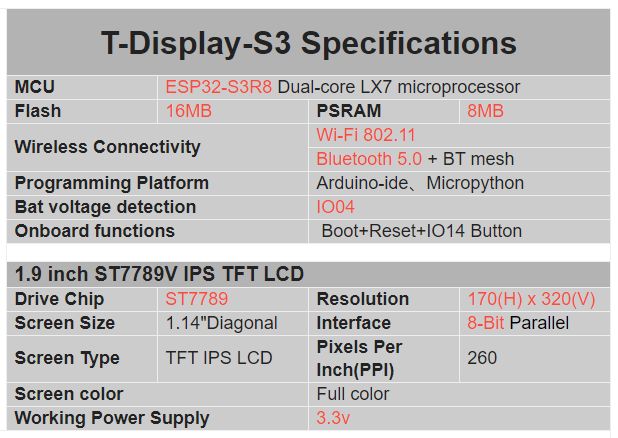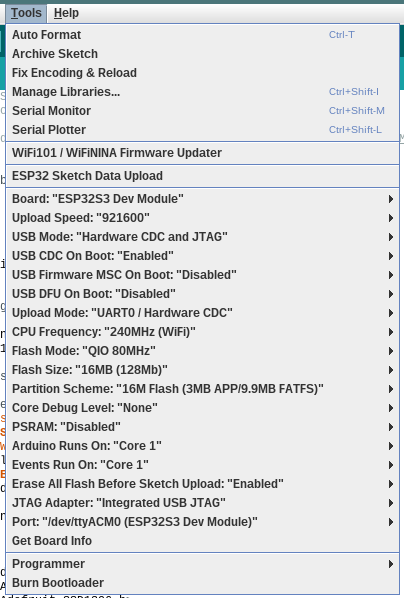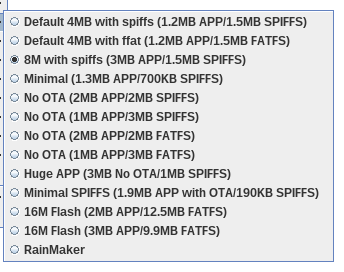Trying to flash µLisp onto a ESP32.S3 board.
USB is working…I have a REPL (yeah!)
But LittleFS isn’t working. (save-image) results in:
E (48931) esp_littlefs: partition “spiffs” could not be found
E (48932) esp_littlefs: Failed to initialize LittleFS
Error: ‘save-image’ problem mounting LittleFS
The board has this specs:

Used settings (Arduino IDE):
I also tried the other 16MB partition scheme with the same result.
How can I fix this and use the complete flash which available?


